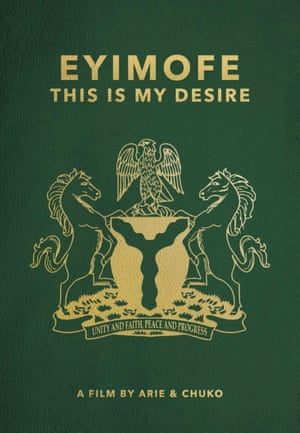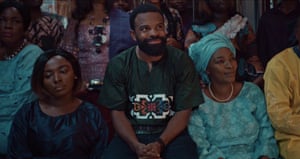Once Nollywood may well have intended films that had been reduced price range and large drama and aimed mainly at a west African audience. But Nigerian cinema has advanced and this year a slew of new movie-makers are tackling grittier subjects – and winning global acclaim.
A roster of screenings at autumn’s Film Africa festival in London reveal administrators unafraid to seem at difficulties this kind of as gender equality, postnatal despair and transatlantic migration.
Managing until eventually 8 November, and offered to see online, Movie Africa opens with The Ghost and the Dwelling of Reality, which follows a counsellor performing with convicts who ought to study to forgive her personal daughter’s killer. Other problems such as feminine infertility and spiritual fanaticism are explored in a sequence of small narratives also hailing from Nigeria.

In which it as soon as centred on simplistic tropes these as excellent v evil, Nollywood has progressed to take on broader difficulties, suggests director Chuko Esiri, whose debut film Eyimofe (This Is My Drive) – a tale of two Nigerians who believe that their life will be far better in Europe – premiered at this year’s Berlin movie competition.
Eyimofe is also screening at Film Africa, between dramas and documentaries from Kenya, Lesotho, Sudan, South Africa and in other places.
“Nollywood has grow to be one thing of a catch-all for the Nigerian film sector, but there is so a great deal additional to it,” reported Esiri, who co-directed Eyimofe with his twin brother Arie.
“What we’re witnessing now is the beginning of an business that has hitherto been dominated by a unique sort of film. Nowadays, new Nollywood movies are infinitely broader in scope and design. It is interesting to be element of a new technology of movie-makers searching to carve out areas beyond Nollywood.”
Nigeria’s movie market is now the next-largest in the earth, sandwiched amongst Bollywood (which will come very first) and Hollywood. Despite the fact that Nigeria releases around 1,000 movies a year, several at present travel considerably over and above the continent or the African diaspora, or get considerably worldwide arthouse interest.
But greater visibility on platforms such as irokotv and Netflix is serving to to boost global curiosity – as is a new technology of movie-makers eager to tackle broader themes, states film field skilled Nadia Denton, who specialises in Nigerian cinema and coined the expression “Beyond Nollywood” to refer to new wave films, animations and brief narratives that are at present marginalised in the Nigerian movie market.
“As Nollywood grows, movie-makers are getting bolder in their output and significantly seeking intercontinental audiences,” Denton informed the Guardian.
One particular case in point is For Maria, which follows new mother Derin as she struggles with a challenging shipping, states Denton.
“For Maria is unquestionably brave. Listed here we have a male director underneath 30, Damilola Orimogunje, having on what is commonly witnessed as a ‘woman’s issue’. It would have been far less complicated for him to have built a romantic comedy or gangster film than a delicate, nuanced piece about postpartum melancholy.

“There is an psychological high-quality to For Maria that I have hardly ever observed from Nigeria on the large monitor: the tenderness shared involving the husband and wife and the frustrating vulnerability of the guide protagonist, who struggles to bond with her new child. It is also the initially film I have noticed where a female of African descent battles with psychological wellness in such a visceral way. In the wake of Black Lives Make any difference and the Covid pandemic, For Maria struck me as obtaining an unwitting sense of urgency.”
Orimogunje, who also co-wrote the script, claims he chose to confront postnatal despair due to the fact it is these kinds of an ignored problem in Nigeria, where by “stigma is connected to everyone who doesn’t fulfill the supposed ‘standard’”.
“Mental wellness typically in Nigeria is barely mentioned, and melancholy nearly looks like a fantasy,” he instructed the Guardian.
“It would alternatively be baffled with spirituality when there is a dire want to confront it. Lots of people really don’t know so a great deal about postpartum depression, particularly the more mature generation. The husband’s adore for his spouse, his support and bewilderment [are also] supposed to split the patriarchal dynamics of men in African society and also in most Nollywood movies.”
The Ghost and the Household of Fact, Eyimofe and For Maria are becoming screened as part of the Outside of Nollywood strand at Movie Africa (30 Oct – 8 November) on the BFI Participant



